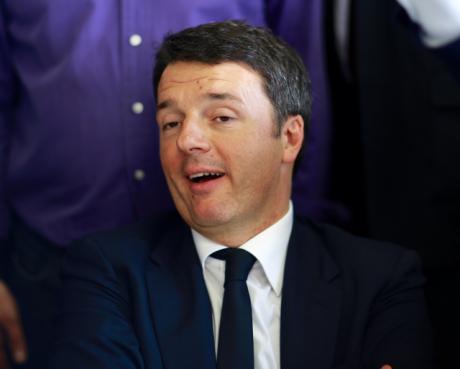Benedetta Brevini provides a much needed correction to the prevailing narrative surrounding Renzi’s defeat (re-published from OpenDemocracy.net)
Recent weeks have seen an increasing global media panic centred around the Italian Referendum vote. The main argument, spread with great effectiveness across the Atlantic and within the continent, was that a No vote to the Italian constitutional reform would mean a victory for populists in Europe, thus fatally damaging an already vulnerable European democracy.
With a few exceptions, international media coverage has constantly compared the Italian Constitutional referendum with the Brexit vote or the catastrophic election of Trump.
Perhaps one of the best ways to explain this frenzied reaction by international media is to borrow the idea of “truthiness”, brilliantly coined by Stephen Colbert in 2005: international media coverage has overtly embraced truthiness instead of truth.
The term was invented to identify the emotional and selfish quality of perceived realities, which are derived from passionate preferences rather than scientific, logical, or even journalistic certainties.
It is this “truthiness” that has framed the debate on the Italian referendum.
Most of the coverage coming from international news outlets have opted for variations of four messages; coincidentally the strongest slogans spread by the Italian government:
First, the idea that this reform was the last chance available for Italy to embark on a journey of salvation.
Secondly, that this constitutional reform was the only way to secure more efficient and stable governance, sustained economic growth and foreign investments.
Third, that if a NO vote was to prevail, Italy would have been promptly on its way to leave the EU, following the path of the disastrous UK journey toward Brexit.
Fourth, the political upheaval created by a potential No victory would impinge on current plans to recapitalise Italy’s most troubled banks, starting with Banca Monte dei Paschi of Siena.
Let’s start with the first post-truth argument.
The Italian constitution was born as a major political compromise after twenty years of fascism. Such an effort resulted in a very modern and flexible Constitution that can easily adapt to the needs of current national decision making processes. Why was this messy, incoherent and complex reform rushed through parliament and to the masses when the Italian constituents were adamant that a major change could take place only with just a vast consensus in parliament?
As for the second argument, the majority of constitutional experts in Italy have reiterated that the changes were aimed at compromising the delicate balance of power designed precisely to avoid the surge of a despotic power in Italy after the experience of fascism.
They also noted that the reform left too much power in the hands of the executive and extended parliamentary immunity to the new members of the reformed senate, who will be elected by party executives instead of a popular vote. But again, these highly authoritative arguments, including the lack of clarity as to the exact competencies of the Senate seemed to be dismissed by mainstream media coverage.
The third argument is perhaps the best example of “truthiness”: that a No vote would threaten the European Union and would lead to an Italian exit from Europe. This is highly flawed for two reasons.
To begin with, the Italian Constitution forbids under article 75 any referendum on international treaties, so the possibility of an exit a la the British is not only improbable, but legally impossible.
More importantly, a survey done earlier this year by the Pew Research Centre has shown that 58% of Italians still see the EU favourably, compared with 50% in Germany, 44% in the UK and 27% in France. Italians favouring the EU actually rose in 2015 after a steady decline, but then slightly declined. So, even if the Eurosceptic Five Star Movement (M5S) won at the next election, we would not see Italy abandoning the European bloc.
The last argument about the financial turmoil in case of a No vote was also highly exaggerated by the Italian government to push the Yes agenda. It was picked up especially by business media outlets, without substantiation in reality. Italy’s debt and banking problems are well documented and would not have been solved by the current proposed constitutional reform.
Renzi’s reform has controversially been endorsed by the very influential association of Italian entrepreneurs (Confindustria), big players in the financial market, as well as the most powerful bureaucrats in the EU, and it is these vested interests that have kept pushing for the Yes agenda.
Perhaps the best proof of how exaggerated these claims were has been offered by the White House, which has rushed to reassure:
“Italians are engaging in a broad national conversation about the reforms they must undertake to put the country on a path toward more effective and stable governance, sustained economic growth, and increased foreign investment. This vote was only a chapter in that conversation, not its end. It will continue in the weeks and months ahead.”
Italians that voted to say No to an unclear and dangerous constitutional reform are not, as the Wall Street Journal declared this morning a “significant victory for populists in Europe’s heartland”.
In fact, the No vote has brought together left-wing organizations, extra parliamentarian radical left groups, trade unions, the Association of Italian Partisans (ANPI), consumers’ associations on the one hand, with the more populist groups belonging to M5S and right wing party groups.
While it is not surprising that the Italian media strongly supported the government view on the reform – after the efforts of Prime Minister Renzi to transform this vote into a political one – it is alarming that “truthiness” came to dominate international media coverage of the Italian referendum.
It was unacceptable that, despite the overwhelming majority of the country’s most respected constitutionalists raising serious doubts about the reform, the dominant media discourse overseas has been replacing truth with truthiness without posing the real questions that proper, unbiased, and free journalism should have asked.




